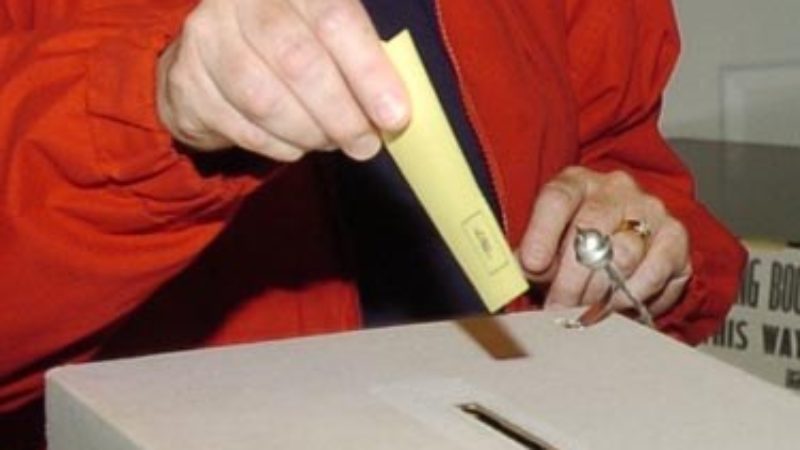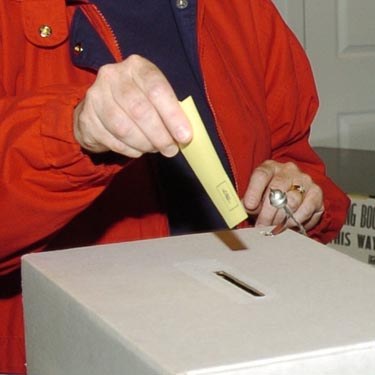
Later today Ed Miliband will speak in Sheffield, and make an appeal to Britain’s young voters. The location is no accident of course. Nearly five years after Nick Clegg betrayed millions of students on tuition fees, Miliband has the Lib Dem leader in his sights, in his own backyard. As we reported over the Christmas holidays, some Labour figures think that the party’s popular local candidate can Oliver Coppard might have a chance of toppling Clegg in his Hallam constituency.

Today‘s launch is part and parcel of a series of appeals to younger voters that Miliband and Labour will be making in the weeks and months ahead – building on the good work that Ivan Lewis was conducting over the summer. A youth manifesto is on the way, as well as confirmation of the party’s new Higher Education policy. As part of the electorate that’s more pro-Labour than some older segments – yet which is less likely to vote – the youth vote has quite rightly been identified by the party as crucial in the battleground seats.
But one aspect of Miliband’s speech today stands out – the key announcement on electoral registration, and re-registering the million people who have dropped off the register in the past year. Here’s what Miliband will say:
“In the last year almost one million people have fallen off the Electoral Register, hundreds of thousands of them young people. This is a direct consequence of the government’s decision to ignore warnings that rushing through new individual registration reforms would damage democracy. It has…We will not allow this scandal to happen and no right-thinking person should either. Labour will now lead a national mission to stop young people being denied a voice at in this election. And today I urge universities, local councils, and young people themselves to play their part. Let’s work together to register young people to vote and make sure they don’t lose their voice.”
He’s right to raise this as a serious issue. A million people dropping off the register is not only bad for Labour but for our democracy too. As Tim Montgomerie has noted, Britain risks becoming a gerontocracy(£), where the old and the wealthy have an even more disproportionate say than they do today. Miliband is also right to say that the government’s disastrous individual registration legislation has caused a decline in electoral registration (it was, after all, part of their attempt to alter the electorate and even constituencies themselves).
And yet what’s depressing about Miliband’s announcement – his call for a “national mission” led by Labour to register voters – is that it’s so late in the day. The election is just over three and a half months away. The deadline for voters to register is even sooner still. If a million people have dropped off the electoral register, then it may well be too late to get most of them back. And how are Labour candidates (told to focus on those who have registered) meant to register the unregistered in their own communities.
If only someone had focussed on electoral registration sooner.
Alas they did. We’ve covered the risks for years on LabourList – for example, Paul Wheeler wrote about it here, here and here. Senior MPs have talked about the risks on LabourList too – John Spellar (along with Council leader Darren Cooper) wrote about it here, Stephen Twigg wrote about it here and here, and just a few weeks ago Liz Kendall made registering young people to vote her New Year resolution. And it’s right for Labour people to worry about a decline in voter registration, because it’s a double whammy for the party – as both new voters and those who fall off the register (especially young people in shared accommodation) are (you guessed it) more likely to vote Labour.
However, one of the first people in the Labour Party to really focus on the need for electoral registration was Miliband himself. Back in May of 2012 he announced “the biggest drive to register new voters in a generation” in a speech to Progress conference.
It never materialised. Or at least I’ve never seen it in my local area or anywhere else I’ve campaigned. And none of the candidates, MPs or staffers I speak to on a regular basis have mentioned it either. So I presume it was either a good intention that went unfulfilled, or it was quietly dumped because someone decided it wasn’t worth doing. Like some other big promises in recent years on party organisation (anyone else remember “nothing less than the refoundation of the Labour Party”?) it talked big but walked small.
If as a party we had started three years ago on the long, hard (and nationwide) task of registering people to vote – alongside regular canvassing as many local CLPs already do – we could have put a sizeable dent in that million who have fallen off the register, as well as adding potential Labour voters who’d never been registered before. We also could have embedded voter registration into our core campaigns. The community organising work of Arnie Graf could have been leveraged to register the unregistered and give them a stake and a say in their local communities (where Graf is right now we do not know, but that’s for another day).
With just over 100 days until election day a voter registration drive is still worthwhile, and the disenfranchisement of a million people that this government has overseen is worth attacking (not to mention proposals from some Tories to stop Commonwealth voters from voting). But it feels like it’s far too late to stop the worst of the damage. It’s worth noting that the party revealed a strategy for getting students to register to vote back in September (so perhaps some of this voter registration work has been going on since then?) but students are of course only a fraction of the missing million.
If only the Labour Party had shown ambition on voter registration when Miliband first mentioned it in such lofty tones, we might already have more voters registered – and more votes in the Labour column come May 7th. Now, the challenge of re-registering the missing voters – nevermind the new voters Miliband once aimed to find – is a tough one indeed.




More from LabourList
Ashley Dalton resigns as health minister for cancer treatment
Paul Nowak column: ‘Labour must focus on the basics’
‘Labour’s two-child cap victory rings hollow while asylum-seeking children remain in poverty’